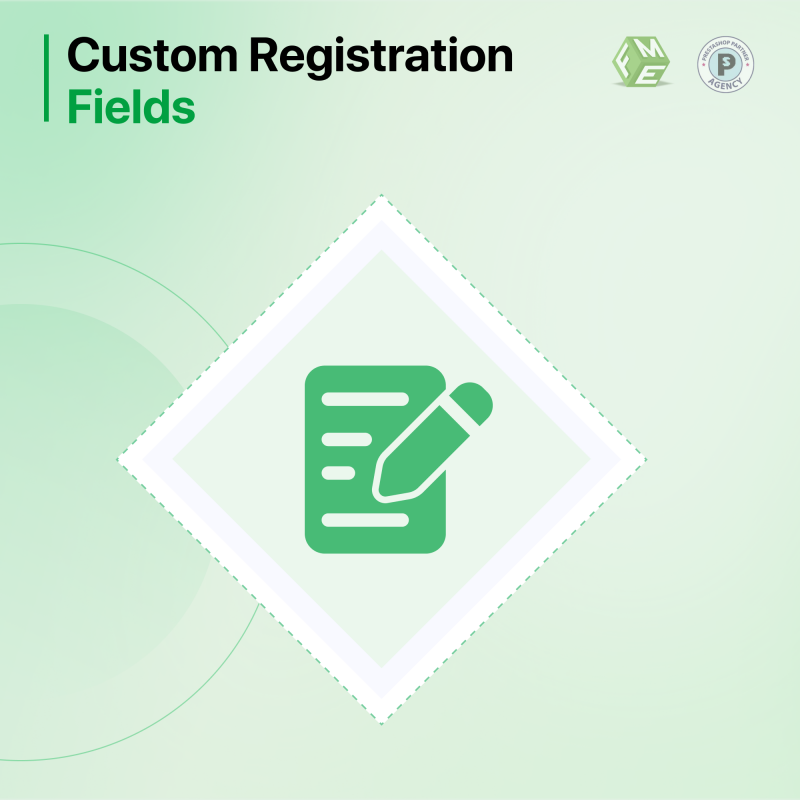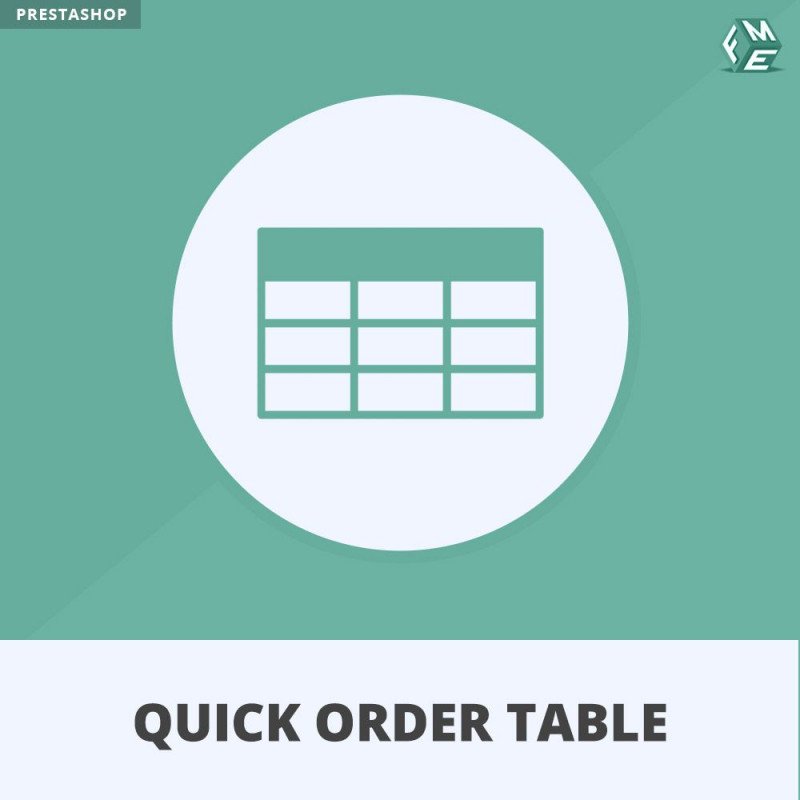In the competitive world of e-commerce, businesses are constantly seeking ways to optimize their customer experience and boost conversions. One often overlooked but highly effective strategy is customizing the registration process. PrestaShop, a popular open-source e-commerce platform, offers robust features that allow store owners to tailor their customer registration forms. By using the PrestaShop customer registration module, businesses can add custom registration fields to collect more detailed information, which can have a significant impact on customer engagement, retention, and overall sales.
In this blog post, we’ll explore how custom registration fields in PrestaShop can drive higher engagement and conversions, backed by real data, real-world examples, and clear cause-and-effect reasoning.
The Power of Custom Registration Fields
By default, PrestaShop collects basic customer information such as name, email, and password. However, by leveraging the PrestaShop customer registration module, store owners can customize this form to capture additional data that enhances the user experience and helps target customers more effectively. These custom fields might include demographic data (age, gender), preferences (preferred product categories), or even unique business-specific requirements like wholesale account numbers or membership IDs.
While it may seem like adding extra fields could overwhelm users, research shows that when done thoughtfully, custom registration fields can improve customer engagement and increase conversions.
Custom Fields Create a More Personalized Experience
The first benefit of adding custom fields to your PrestaShop registration form is the ability to gather more information about your customers, which in turn allows you to create a more personalized experience. A personalized shopping experience is something customers are increasingly expecting. In fact, Epsilon’s 2018 study revealed that 80% of consumers are more likely to make a purchase when a brand offers a personalized experience.
When customers provide additional information—whether it’s their preferences, interests, or specific needs—it gives you the ability to recommend products tailored to their tastes. For instance, if a customer indicates that they prefer eco-friendly products during registration, you can tailor their homepage with relevant recommendations, promotions, and content, making them feel more valued.
Cause-Effect: When a customer feels that a store understands their needs, they’re more likely to engage with the store, make purchases, and return for future shopping.
Collecting Valuable Data for Targeted Marketing
The data collected through custom fields isn’t just useful for enhancing personalization on a one-off basis. Over time, this data can be aggregated and analyzed to develop targeted marketing strategies that are more likely to drive conversions.
For example, if you add a “Birthday” field, you can send out personalized discount codes or special offers around the customer’s birthday, which is a powerful way to encourage repeat purchases. According to a 2019 study by Bluecore, 47% of shoppers are more likely to purchase from a brand that offers personalized promotions based on their behavior or personal milestones.
Similarly, if you ask customers to provide information about their preferred product categories (e.g., “What type of products do you buy most often?”), you can segment your email list and send targeted offers that speak directly to those categories. This can increase the relevance of your marketing messages, which is directly linked to higher conversion rates.
Cause-Effect: By collecting detailed data via custom fields, you can improve your email campaigns and product recommendations, leading to more engaged users and higher conversions.
Reducing Cart Abandonment with Pre-Filled Forms
One of the main reasons for cart abandonment is a cumbersome checkout process. According to Baymard Institute, 21% of customers abandon carts because they are asked to create an account, and another 28% abandon due to long or complicated forms. However, by leveraging the data already collected through custom registration fields, you can speed up the checkout process by pre-filling relevant information like shipping address, phone number, or even preferred payment methods.
Additionally, customers are more likely to complete a purchase if they feel the registration process is easy, quick, and tailored to their needs. For instance, a wholesale customer may want to include their company’s tax ID or reseller certificate during registration, and providing a custom field for this can save them time, making them feel like your store is tailored to their business needs.
Cause-Effect: By collecting key data at the point of registration and pre-filling relevant fields, you reduce friction in the checkout process, which can lead to lower cart abandonment rates and higher conversions.
Building Trust and Transparency
Another significant benefit of adding custom registration fields is that it allows you to build trust with your customers. Trust is a cornerstone of any successful e-commerce store, and customers are more likely to engage with a store that offers transparency about how their data will be used.
For example, a field asking customers if they would like to receive marketing emails (opt-in field) allows you to set clear expectations with them about the types of communications they will receive. Customers who feel in control of their data are more likely to engage with your store, as they trust that their information will not be misused.
Additionally, allowing customers to indicate preferences for things like delivery time or packaging can provide them with an enhanced shopping experience, showing that you care about their needs.
Cause-Effect: Offering customers the option to control what data they share and how it’s used helps build trust, which fosters higher engagement and repeat purchases.
Increasing Conversion with Incentives
Using custom registration fields strategically can also be an excellent way to offer incentives that encourage more sign-ups and higher conversions. For instance, if you include a field where customers can opt into your newsletter and receive a discount code or free shipping on their first purchase, it incentivizes them to register.
This “first-purchase discount” strategy is highly effective. According to a 2019 RetailMeNot report, 80% of shoppers are more likely to complete a purchase if offered a discount, and they are more likely to return for future purchases.
By offering an incentive for completing the registration process, you’re not only gathering valuable data but also motivating customers to convert right away.
Cause-Effect: Offering an incentive through custom registration fields increases sign-ups and first-time purchases, leading to higher conversion rates.
SEO Benefits of Custom Registration Fields
Optimizing your PrestaShop customer registration module with custom fields also offers potential SEO benefits. The more tailored the registration process is, the more likely customers are to engage with your content and return to your site. Higher engagement can lead to better user behavior signals, such as longer time spent on-site and more frequent visits, which are factors that search engines like Google use to rank pages.
Additionally, data from custom fields can be used to create more targeted content for your customers, increasing the chances of ranking for long-tail keywords related to their preferences.
Cause-Effect: Custom registration fields lead to higher engagement, which in turn signals to search engines that your site is valuable, potentially improving organic search rankings.
Conclusion
Custom registration fields in PrestaShop can significantly enhance customer engagement, improve user experience, and drive higher conversions. By allowing customers to provide more detailed information, you can personalize their experience, gather valuable data for targeted marketing, reduce cart abandonment, and build trust. Implementing these fields strategically through the PrestaShop customer registration module can be a game-changer for e-commerce businesses looking to boost customer retention and increase revenue.
By focusing on the customer experience and making the registration process more tailored and efficient, you’re creating a more valuable and engaging shopping journey, which ultimately leads to improved sales and long-term success.



